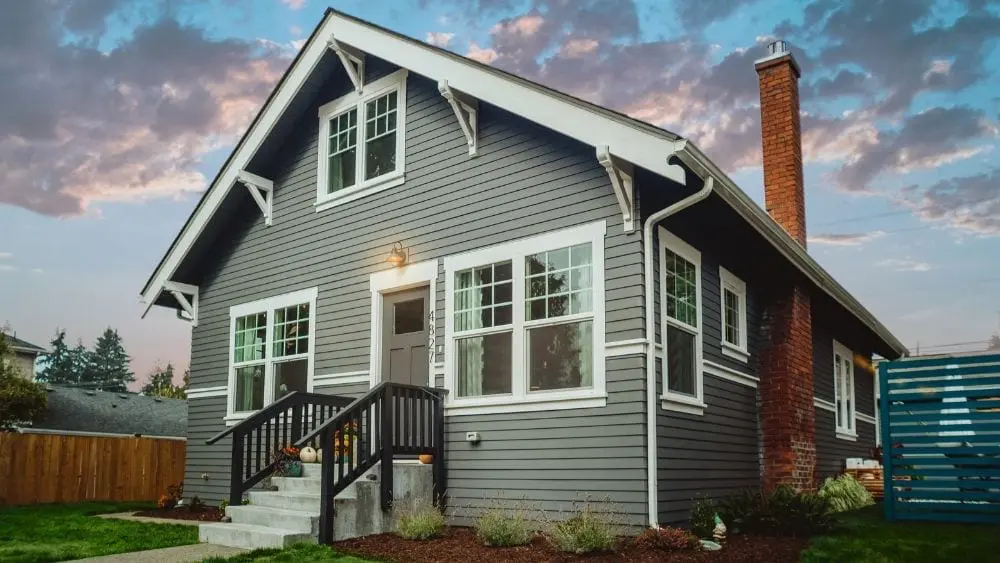
Homeownership is a common goal among young adults, but it can feel unattainable when you consider the cost of buying or building a new home. If you’re interested in a newly built home but are looking for a more financially friendly option, consider manufactured homes.
These homes, built in a factory and placed on-site to be installed into a foundation, are well known for being a less-expensive path to homeownership. But is there a way to get the features and amenities you want without paying at the higher end of the scale? While not guaranteed, the good news is that it’s certainly possible.
What Goes into Manufactured Home Costs?
Before you can think about negotiating the price of a manufactured home, you need to understand how prices are determined. For homebuilding in general, materials, labor and the time it takes to construct the home are the three biggest factors that affect costs. So why are manufactured homes typically less expensive? For one, they can be significantly lower in square footage, meaning fewer materials need to be purchased — but this can be said for many different home styles. Manufactured homes can also be built much more quickly than a traditional home — factory construction means weather delays are nonexistent — which saves a significant amount of money.
Factors that can add to the costs of a manufactured home include common steps in sales. Markups and holdbacks — percentages added to the invoice price for the dealer’s profit — and referrals for specific insurance and warranty companies can gradually increase the overall sales price.
How do I Negotiate?
Now that you’re aware of what goes into determining the cost of a manufactured home, let’s talk about how to negotiate that price. The first step is to familiarize yourself with the market and builders. Being an informed buyer will help you set reasonable expectations for what kind of home is within your budget, but will also ensure you’re getting the best deal possible.
Be sure you understand the full costs associated with the building process as well, not just the price of materials. Do you have a plot of land that is home-ready, or will it need to be cleared and levelled? How much will it cost to transport and install the home? To connect utilities? All of these can add to the overall cost, so it’s important to be mindful of them.
Once you’ve determined your budget, it’s time to decide which builders you’re most interested in and schedule meetings with them. During discussions, negotiate the overall cash price and not just the monthly payment.Why? Focusing on the monthly payment doesn’t take term length, principal and interest rate into consideration; if you’re not looking at the overall cash price, you could end up paying more in the long run.
Don’t forget that a custom manufactured home means that you’re also selecting features and design upgrades. Put your budget at the forefront of this conversation so that you and your builder can work collaboratively to determine the elements that will fit your needs without breaking the bank.
You should also be aware of what sort of dealership you’re visiting. Are you connecting with a builder who can also function as a dealership, such as Clayton Homes? Or are you visiting an independent dealership, who is selling on behalf of a builder? There are legal nuances when it comes to selling manufactured homes, but the important thing to know is what the connection between the dealership and the builder is, as this will indicate how many intermediaries are being paid in the process, resulting in a higher cost for you.
Finally, remember those retail markups, holdbacks and referrals we mentioned earlier that can increase the cost? Ask for the invoice cost of the home, which is the raw price for construction without any added expenses that the dealership uses to make a profit. If the dealership is insistent on providing insurance, financing or warranties through recommended providers, don’t just quietly comply; be firm about doing your own research and finding your own resources. More often than not, warranties and extras through a dealership will cost you more than they would if you went directly to a lender, since there will be a built-in profit for the dealership for making the referral.
The Work Pays Off
With manufactured homes, there is a certain element of getting what you pay for, but that doesn’t mean you need to pay stick-built home prices for a home you love. Doing your own research to become informed about the process and market will do wonders to get you the price you’re looking for. Want to know about home listings in your area? Head over to NewHomeSource and give us a follow on social media for regular updates!

Kian Zozobrado joined Builders Digital Experience (BDX) in 2019 as a content writer. A graduate of Southwestern University with a degree in English, Kian is passionate about the written word and making connections. Outside of work, Kian also serves as president of the Board of Directors for the Writers’ League of Texas.
 Are Manufactured Homes a Good Investment?
Are Manufactured Homes a Good Investment?